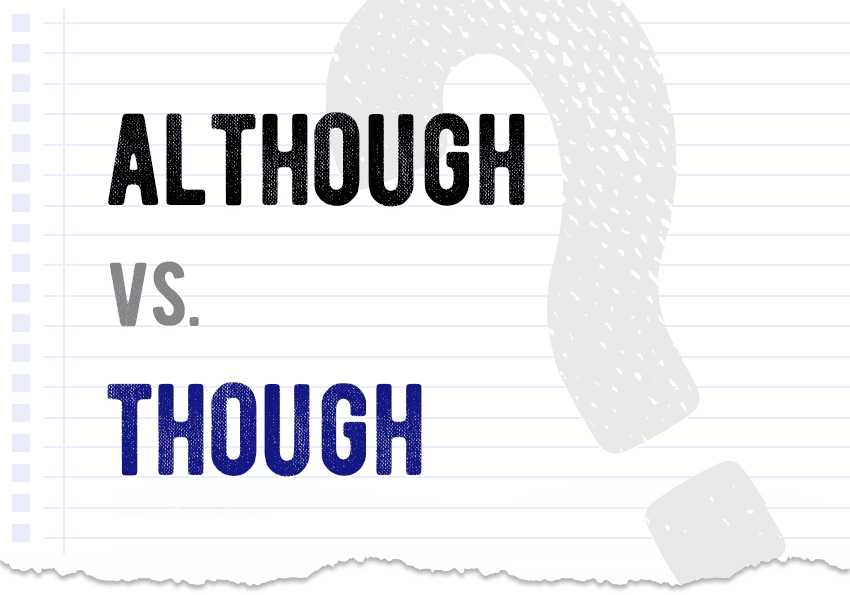Although vs. though — is there any difference?
Although vs. though – look similar, sound similar, appear in similar contexts and both are correct — but are they always interchangeable? Let’s find out if there is any important difference between them.

Although vs. though – conjunctions
Although and though are used as subordinating conjunction, meaning ‘in spite of the fact that’. They appear at the beginning of a dependent clause. They explain sequence or results, which contrast with what is said in the main clause. In such case, although and though can be used interchangeably. Have a look at the below example:
‘Loki was not evil, although he was certainly not a force for good. Loki was… complicated.’
Neil Gaiman, Norse Mythology, 2017
However, it is worth remembering that though is regarded as more informal and more common in speaking than although. There is also another difference: for an emphasis, you can put even before though, but never before although:
‘There are some things one remembers even though they may never have happened.’
Harold Pinter, Old Times, 1971
Although and though cannot be used before a noun clause; the phrase you are looking for in such cases is ‘despite’ or ‘in spite of’, like in the example:
‘For books continue each other, in spite of our habit of judging them separately.’
Virginia Woolf, A Room of One’s Own and Three Guineas, 1929
Although vs. though – adverb
Sometimes though becomes an adverb, meaning ‘however’ or ‘nonetheless’. It indicates a contrast with what you have just said. You should place though after the first phrase in your sentence, or at the end of the sentence. Although, however, can never function as an adverb, so it can never appear as the last word in a sentence. As you can see, in this case, although and though are definitely not interchangeable.
See the example of though as an adverb:
‘Not just beautiful, though–the stars are like the trees in the forest, alive and breathing. And they’re watching me.’
Haruki Murakami, Kafka on the Shore, 2002


